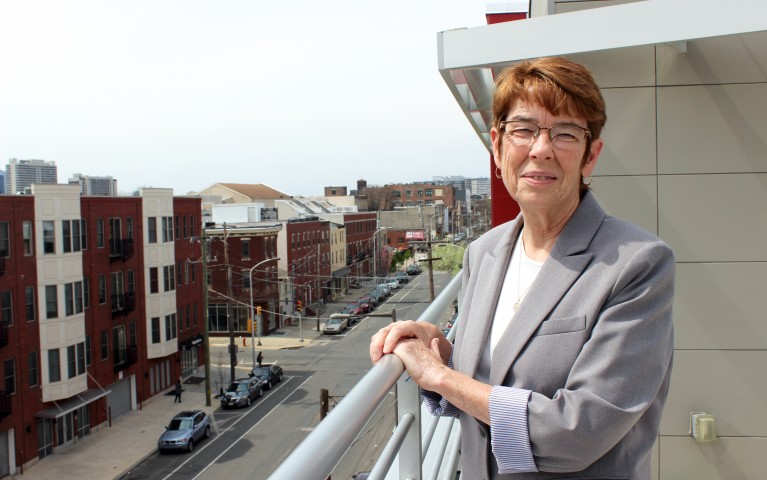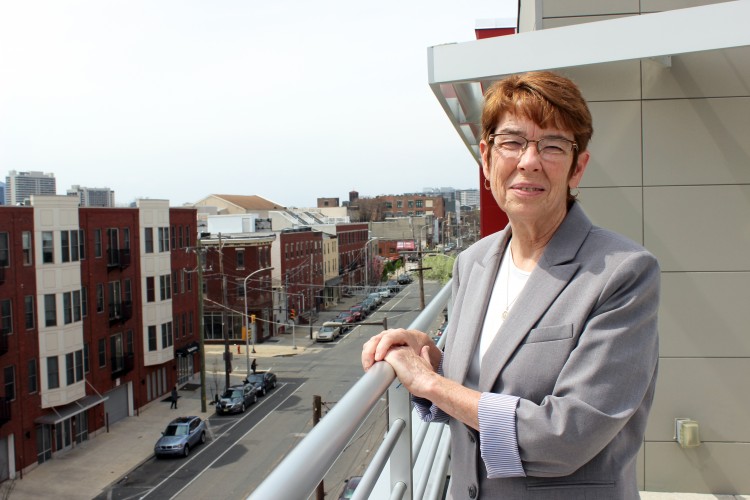We Can End Homelessness | Part One

Project HOME’s co-founder and Executive Director Sister Mary Scullion spoke recently to a group of Chester County officials, service providers, advocates, and other stakeholders to encourage them in the development of a Ten-Year Plan to Prevent and End Homelessness. This posting is part one of her remarks.
It is true that we have been dealing with homelessness as a significant social crisis for three decades now. So it is understandable when people begin to feel discouraged. From a certain perspective, it is easy to believe that homelessness is an intractable problem, an inevitable part of the American urban landscape.
Cynics might even say that it is obvious that many homeless persons are beyond help and that despite years of efforts the problem is not going away. The best we can do is simply manage the situation with the help of a few well-intentioned charities and some shelter beds – and when necessary, legislate and police people out of our downtowns and our nice neighborhoods. So to speak of developing a plan to end homelessness seems hopelessly naive at best, and at worst mere political posturing and sloganeering.
What do we really hope to accomplish beyond a fancy bureaucratic report which in the long run will be shelved and forgotten – while the suffering of sisters and brothers on the streets and shelters will persist? We are here today because we dare to believe differently. We dare to use the language of ending homelessness. We dare to hope, and to work to turn that hope into real progress This is the good news: Effective solutions exist. We know what kinds of programs and services work. We know what results we can achieve with well-invested resources and solid planning. Not only in Philadelphia, but in cities around the country, we have a track record of over twenty years worth of successes. We know, for instance, that permanent supportive housing, when operated by quality programs with sufficient resources, has a tremendous track record.
The vast majority of our residents in permanent housing, who have lived with chronic mental illness, addiction (or in many cases both), are now working, going to school, and in some way giving back. Permanent housing created the stability in their lives that allowed them to develop their talents and become contributing members of society. We know, too, that employment is a critical component in overcoming homelessness. Here, too, we can point to many successes. It is true that the majority of persons who are homeless come from backgrounds of severe poverty and have therefore had significant deficits in education and work background. But there are innumerable examples of effective job training programs and employment initiatives that have allowed persons coming off the streets to succeed.
At Project HOME, we have created some of our own job training and employment programs, such as a thrift store, which allow many of residents to begin the process of learning fundamental job skills and responsibilities. We have also developed creative partnerships with other organizations to create employment opportunities. One of our more remarkable successes came out of dialogue with the Free Library of Philadelphia. Their main Center City branch was struggling with the issue of many homeless persons coming in from the streets to use their restroom facilities, which was creating unsanitary conditions and some tension among patrons.
Together, we developed a creative program in which the Library hired several of our residents as restroom attendants, who could both keep their facilities clean and orderly, and share with many of the homeless persons information about resources to help them get off the streets. Encouraged by this success, a year later, Project HOME entered into a partnership with the Free Library, Starbucks Coffee, and Metropolitan Bakery to open the HOME Page Café in the Library. It provides quality products in an internet café while giving good jobs to many of residents – and it is succeeding as a for-profit business. This is a shining example of the rich and diverse community that has come together to build real solutions.
This is, in fact, a necessity: We need to develop strategic and effective partnerships to get the work done. Project HOME could not have accomplished any of our successes without partnerships and support from organizations, entities, and individuals from all walks of life and all sectors of society.
